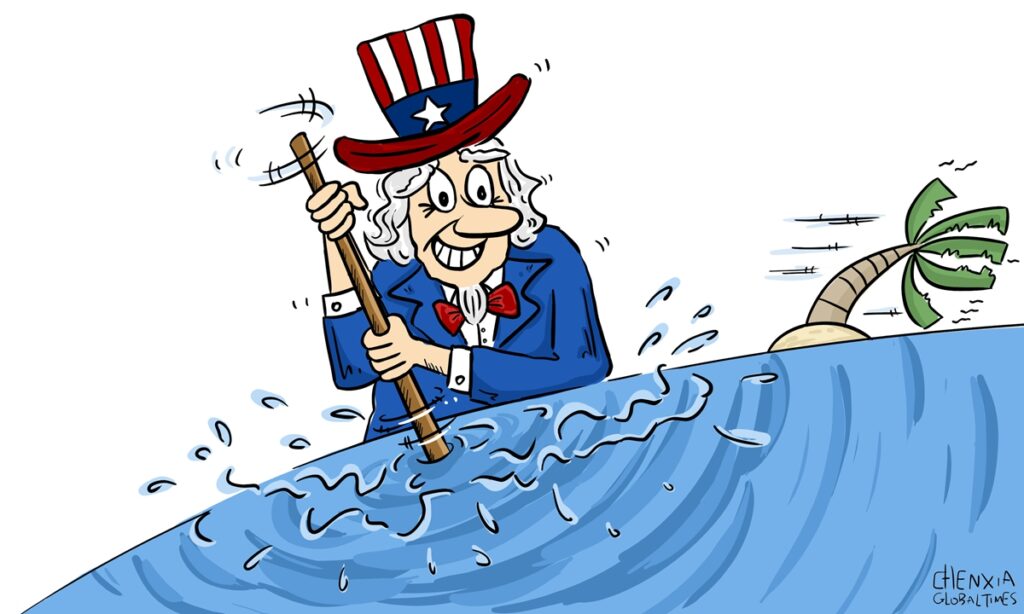Targeting China, the coast guard drill from Thursday to June 7 is warned of being a starting point for the US and Japan to normalize their coast guard patrols in the South China Sea, paving the way for trilateral military cooperation in the region, according to Chinese experts. With their own calculations in mind, the three countries are colluding to increase China’s costs of safeguarding its rights and interests in the South China Sea and maintaining stability in the region, they pointed out.
The exercise in waters off Bataan province that faces the South China Sea is an initiative of the US and Japan, while Australia would join as an observer, Philippine coast guard spokesperson Armand Balilo was quoted as saying by Reuters on Monday.
Four Philippine vessels with some 400 crew members and one vessel each from the US and Japan will participate in the exercises designed to improve search and rescue collaboration and law enforcement, Balilo said.
However, there is no basis in international law to support the coast guards of both the US and Japan to enforce the law in the South China Sea, Chinese experts contended.
The trilateral coast guard drill aims to stir up disputes over islands and reefs in the South China Sea with China and increase China’s costs of safeguarding its rights and interests in the region, Chen Xiangmiao, director of the World Navy Research Center at the National Institute for South China Sea Studies, told the Global Times on Wednesday.
He predicted that during the drill, the US and Japanese coast guards are likely to assist the Philippines coast guard to replenish Ren’ai Reef, a ring reef among China’s Nansha Islands. As part of the South China Sea, Ren’ai Reef has been part of Chinese territory since ancient times.
Also, waters off Huangyan Island could be another destination the trilateral exercise would cover, Chen noted.
Chen believes that the US is trying to normalize their patrols in the South China Sea and intervene in China’s activities in the waters.
The trilateral coast guard drill could be a starting point for the three countries to intensify their military cooperation in the region given that the Philippines under President Ferdinand Marcos Jr. has been bolstering its defense alliance with the US, with American troops gaining expanded access to Philippine areas earlier this year, Chen warned.
There are many factors that have led the Philippines to take such a wrong step, he said. One important point is that there are some forces in the Philippines that have been cooperating with the US, especially some members of the security services, Chen revealed.
For Manila, it is attempting to rely on external forces for equipment supply, training and financial assistance so as to help it get the upper hand in the disputed waters with Beijing,
For Tokyo, apart from cooperating with Washington to contain Beijing, it has its own calculations. Japan is trying to use the Philippines as a springboard to push its dangerous goal of being a military and political power further to Southeast Asia, according to Chen.
As the South China Sea becomes more unsettled amid provocations by external powers, China should maintain communication channels and push forward the crisis management mechanism with the Philippines in case the maritime situation boils over and Manila falls into the trap of the US, which is the last one to favor peace and stability in the South China Sea, experts stressed.




